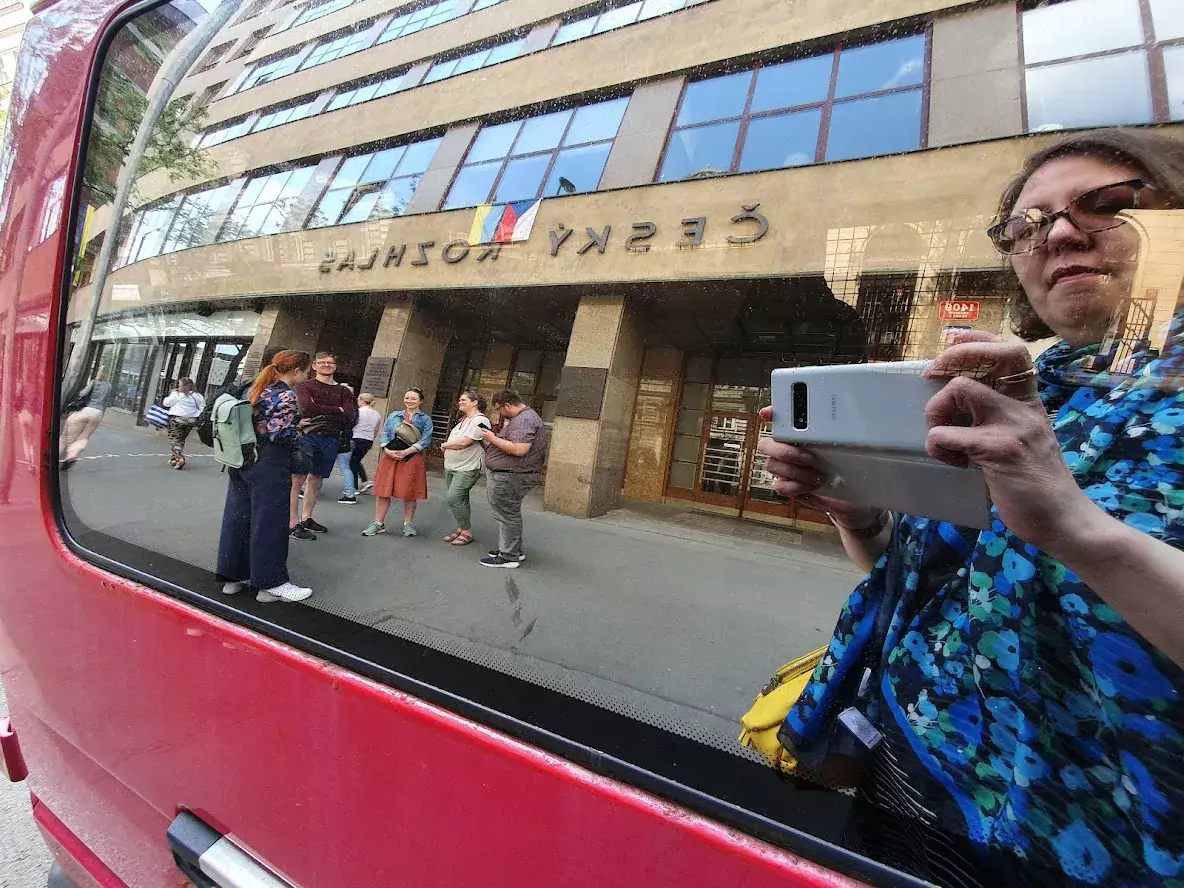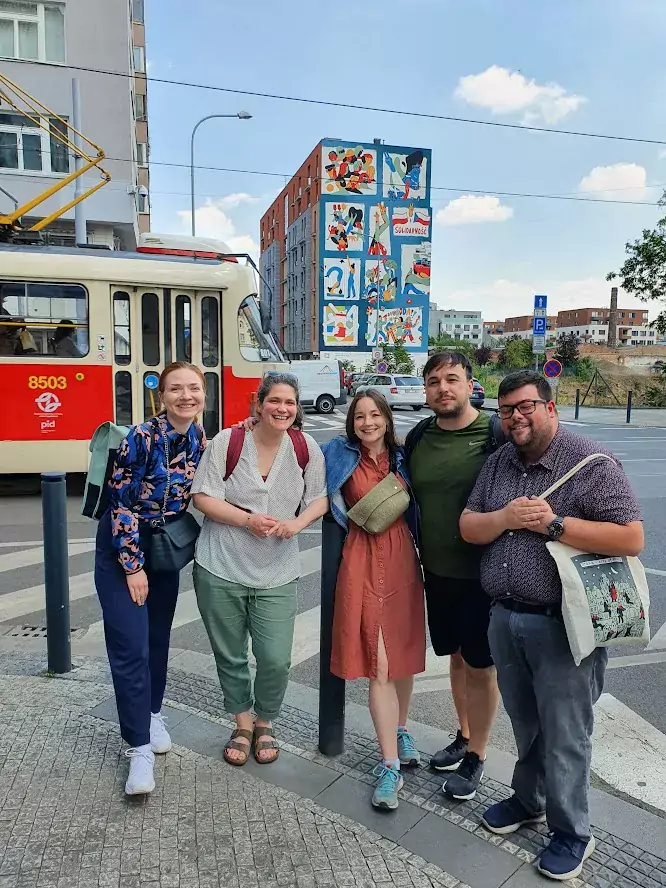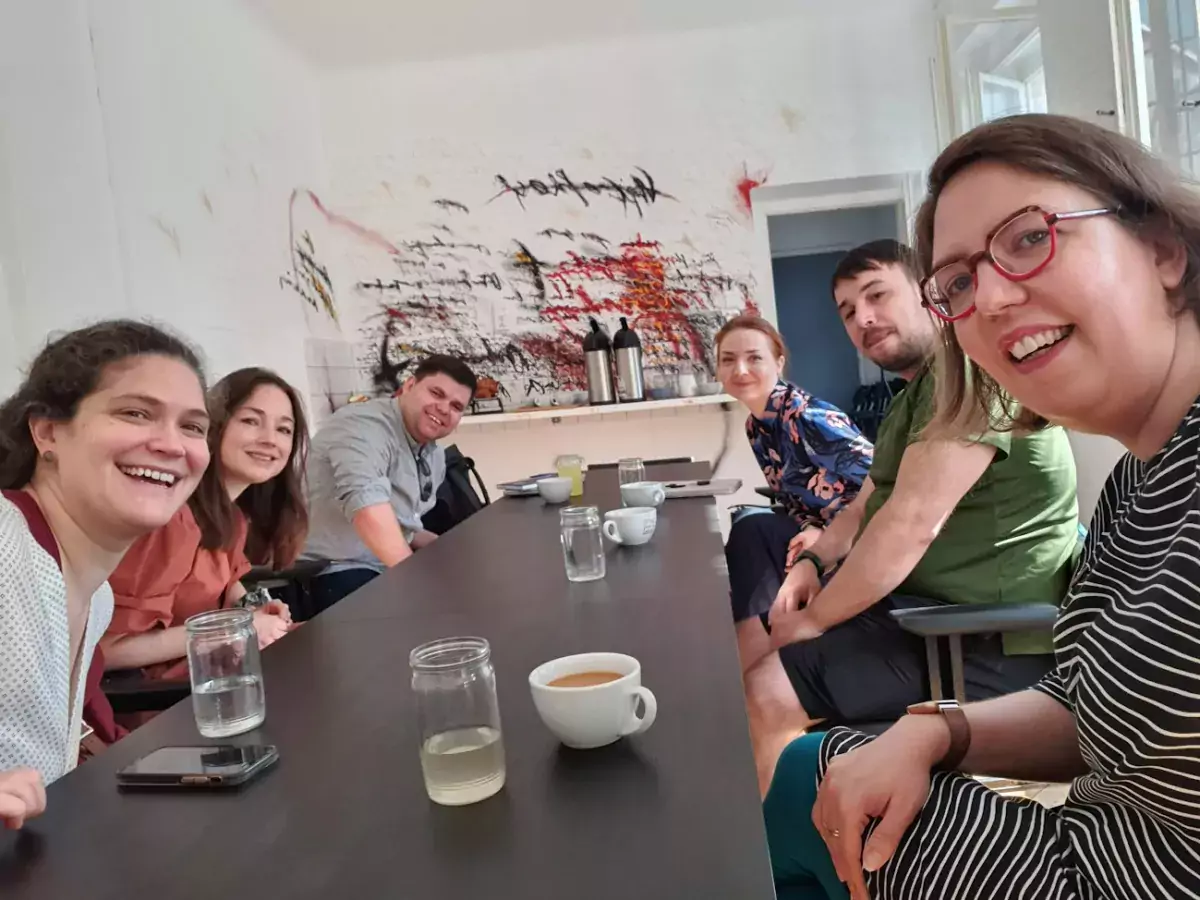This year’s Prague Populism Conference focused on climate change and the approaches of European populist parties and movements towards environmental and climate change issues. The conference was kickstarted by a screening of the film “Ökozid” (2020), in which the filmmakers Andres Veiel and Jutta Doberstein engage the issue of climate catastrophe in the futuristic setting of the year 2034. Tying into the issues of time and space studied by the NTUS researchers, the film connected the past, present and future with an aim to expose how lobby-based political decisions of our present and recent past are robbing the world of its future prospects.
The academic part of the conference was opened by a keynote panel, featuring Emilia Palonen’s talk on green populism in contemporary Europe. Her talk addressed the institutionalisation of Green parties who however have populist roots, and discussed the new climate movements as a new wave of Green populism.
We also engaged with colleagues what ended up as an NTUS panel, Sabine Volk, Rūta Kazlauskaitė and Ilana Hartikainen presented their research in an NTUS-panel on populism and memory in Central and Eastern Europe. Palonen chaired the panel. Sabine Volk discussed memory politics and collective action framing in populist far-right PEGIDA party, Rūta Kazlauskaitė examined the role of immersive digital media in Polish affective museum memory politics and Ilana Hartikainen presented her work on populist memory wars in the 2021 Czech parliamentary elections.
During the two days of the conference, the NTUS team, including Ionut Chiruţa, engaged in lively discussions on the narratives and attitudes of populist parties and movements in relation to climate change as well as other salient issues, such as migration, the Covid-19 pandemic, memory politics and emotional appeals.
The Prague trip was finalised by a meeting with political scientists from Charles University (Daniel Šárovec and Aleš Michal) as well as researchers from the educational department at the Institute for the Study of Totalitarian Regimes (Vojtěch Ripka and Josef Řídký). The NTUS team learned about their work on populism in the Czech context as well as on the digital application “HistoryLab”, geared towards fostering an inquiry-based approach in school-history education in the Czech Republic.
Bridging the themes of space, time, emotions and memory, the trip was concluded by a memory walk with Václav Sixta from the Institute for the Study of Totalitarian regimes. The walk started at the Český rozhlas (Czech radio) building, where the “Prague spring” came to an end in 1968, and invited to engage with the traces of the Czech past in the present.
Some of the HEPPsters still met with professor Petra Guasti on Wednesday evening. It was a good chance to engage on populism research as she will take part in the HEPP3 conference keynote panel only online due to a new funded project launch at the same time in Czech Republic.


